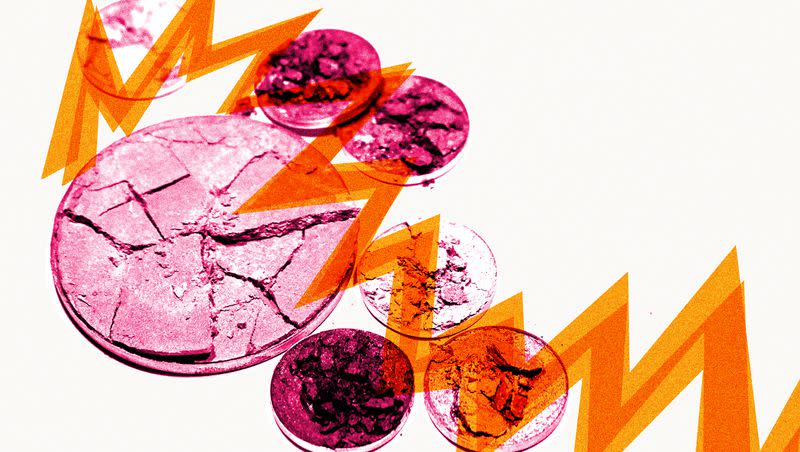Perspective: The latest reason to keep your kids off TikTok: ‘Sephora kids’

The name Karen took a drubbing in recent years as it became associated with a certain type of woman, one who appears entitled, demanding and rude, often in a retail setting.
Now there’s a name for a child who acts the same way. Meet the “Sephora kid” — although you’d probably rather not.
In the parlance of social media, a “Sephora kid” is a preteen girl who goes into specialty makeup shops like Sephora or Ulta to shop for products that have traditionally been marketed to women and older teens. While there, the Sephora kid, either alone or in a pack, behaves badly — being rude to store employees, using profanity, leaving displays in disarray, acting as if the world exists to serve her.
As an article about the phenomenon on the pop culture website Bored Panda explained, “In the past couple of weeks, TikTok has been flooded with viral posts from beauty retail store shoppers and staff discussing their own brutal experiences with being ‘bullied’ by pre-teen girls from ages 9-12, dubbed ‘Sephora kids,’ while shopping for beauty products.”
A few of the commenters begged the stores to institute an age limit, or require preteens to be accompanied by a parent.
While much of the discussion has to do with the behavior of the Sephora kids, there’s also the issue of why these young girls are buying makeup and skin-care products designed for women who are much older.
The answer is ironic. They’re seeing makeup and anti-aging products celebrated on TikTok by beautiful women.
“Extensive expensive skincare routines and makeup has become a status symbol for Gen Alpha, driven by a desire to fit in with peers,” Dr. Brooke Jeffy, a dermatologist in Scottsdale, Arizona, told Fox News Digital. She added, “Social media filters have created unrealistic expectations of perfect poreless skin fueling sales of makeup to kids. Add to that a fear of aging modeled by influencers, parents and friends and the desire for anti-aging skincare is born.”
I talked to my daughter, who works at Ulta, and she confirmed all this from her own experience. Preteens often come in her store, sometimes using their parents’ credit cards to buy products that aren’t designed for pre-pubescent skin — both in their chemical composition and in their marketing.
A popular brand called Urban Decay, for example, has marketed “Sex Proof” and “Perversion” brands of mascara, along with “Stay Naked” foundation and concealer, and a “Stay Naked Threesome” palette.
One of the most popular brands right now among young girls is called “Drunk Elephant.”
The Sephora kid is therefore a confluence of many terrible things — products inappropriate for her stage of life, inadequate parental supervision, disrespect and bad manners. But as bad as she seems, she’s not even the chief villain in the story. TikTok is.
Some of the Sephora kids are, no doubt, emulating their peers, and maybe even their sisters or mother, in shopping for these sorts of products. But many of them are being lured into this world by what they see on TikTok — social media stars aren’t called “influencers” for no reason.
Related
People who bemoan TikTok are often derided as pearl clutchers, so it’s an interesting turn of events that it’s TikTokers calling out the Sephora kids, and it suggests that maybe a bit of pearl clutching is in order at this moment.
When children are relentlessly sold things — whether a product or a standard of beauty — they are the most eager of consumers, lacking the judgment and skepticism most adults accrue with age. And TikTok exists to sell (after collecting our data). There are many benign corners of the platform — I am partial to farmers singing to their donkeys and other whimsical videos sent to me by animal-loving friends — but other spaces are more treacherous. People report sexualized content showing up in their feeds. And “beauty TikTok,” as it is known, is a deceptively dangerous place, especially for the young.
It’s been four decades since the publication of Neil Postman’s “The Disappearance of Childhood,” which warned of the consequences of letting kids be miniature adults, absent the strictures society once put in place to protect children from adult language, knowledge and practices. Of all the ways children grow up too fast, perhaps wearing makeup is the least troubling. More troubling is the sly way that TikTok — and social media in general — seemingly overnight became role models for our kids.
That, and not TikTok’s effect on attention spans or its data grab, is reason enough for parents to limit their children’s use of the app, or to forbid it altogether, as ultimately futile as that may seem. As Allyson Flake Matsoso wrote for Deseret last year, “Let’s not blame the world, the government or corporations. If our kids are consuming junk, get it out of the house.”
A corollary might be: Just say no to Sephora if your daughter is not yet a teen.

